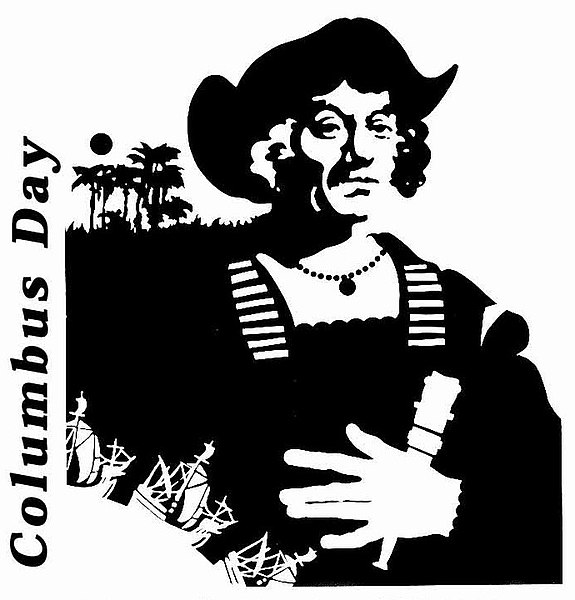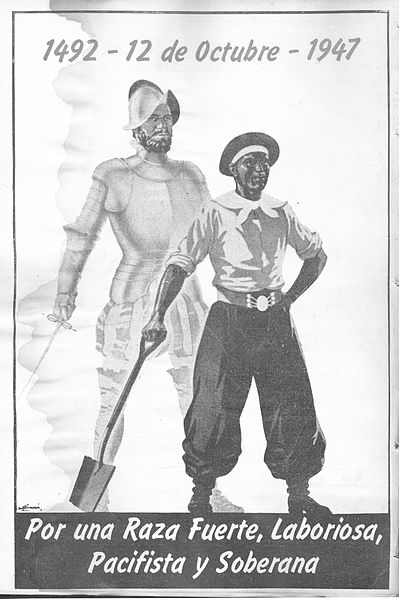Columbus Day is a national holiday in many countries of the Americas and elsewhere, and a federal holiday in the United States, which officially celebrates the anniversary of Christopher Columbus's arrival in the Americas. Columbus went ashore at Guanahaní, an island in the Bahamas, on October 12, 1492. On his return in 1493, Columbus moved his coastal base of operations 70 miles east to the island of Hispaniola, what is now the Dominican Republic and established the settlement of La Isabela, the first permanent Spanish settlement in the Americas.
First Landing of Columbus on the Shores of the New World; painting by Dióscoro Puebla (1862)
Stylized graphic from the United States Department of Defense
Columbus Day Parade in New York City, 2009
The former Christopher Columbus Monument along Paseo de la Reforma in Mexico
The Spanish expression la Raza has historically been used to refer to the mixed-race populations, considered as an ethnic or racial unit historically deriving from the Spanish Empire, and the process of racial intermixing during the Spanish colonization of the Americas with the indigenous populations of the Americas.
The Monumento a La Raza at Avenida de los Insurgentes, Mexico City (inaugurated 12 October 1940)
Text by Rubén Darío ("Salutación del optimista", 1905) inscribed on the Monumento a la Raza in Seville (1929). Translation: 'Illustrious, most fruitful races, fecund blood of Hispania, fraternal spirits, lumious souls, greetings!'
Propaganda poster by the Argentine government (1947) advocating a "strong, industrious, peaceful and sovereign race".







